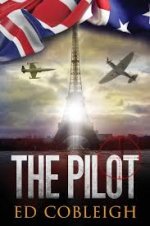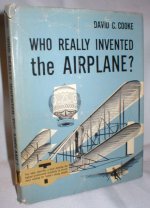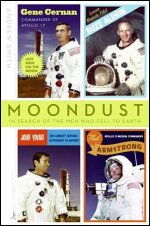Patrick Murtha
Reader
These are subjects I really enjoy reading about.
Ed Cobleigh, The Pilot: Fighter Planes and Paris (see post below)
David C. Cooke, Who Really Invented the Airplane? (see post below)
Joseph J. Corn, The Winged Gospel: America’s Romance with Aviation (excellent cultural study)
Peter Demetz, The Air Show at Brescia, 1909 (fine micro-history)
Craig Nelson, Rocket Men: The Epic Story of the First Men on the Moon (terrific account)
Antoine de Saint-Exupéry, Night Flight (classic)
Andrew Smith, Moondust: In Search of the Men Who Fell to Earth (see post below)
Ed Cobleigh, The Pilot: Fighter Planes and Paris (see post below)
David C. Cooke, Who Really Invented the Airplane? (see post below)
Joseph J. Corn, The Winged Gospel: America’s Romance with Aviation (excellent cultural study)
Peter Demetz, The Air Show at Brescia, 1909 (fine micro-history)
Craig Nelson, Rocket Men: The Epic Story of the First Men on the Moon (terrific account)
Antoine de Saint-Exupéry, Night Flight (classic)
Andrew Smith, Moondust: In Search of the Men Who Fell to Earth (see post below)



